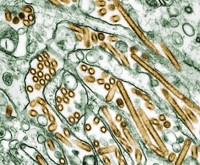Advertisement
Grab your lab coat. Let's get started
Welcome!
Welcome!
Create an account below to get 6 C&EN articles per month, receive newsletters and more - all free.
It seems this is your first time logging in online. Please enter the following information to continue.
As an ACS member you automatically get access to this site. All we need is few more details to create your reading experience.
Not you? Sign in with a different account.
Not you? Sign in with a different account.
ERROR 1
ERROR 1
ERROR 2
ERROR 2
ERROR 2
ERROR 2
ERROR 2
Password and Confirm password must match.
If you have an ACS member number, please enter it here so we can link this account to your membership. (optional)
ERROR 2
ACS values your privacy. By submitting your information, you are gaining access to C&EN and subscribing to our weekly newsletter. We use the information you provide to make your reading experience better, and we will never sell your data to third party members.
Environment
Rules Aim to Curb Infections Disease
World Health Organization requires immediate notification of outbreaks
by BETTE HILEMAN
May 30, 2005
| A version of this story appeared in
Volume 83, Issue 22
PUBLIC HEALTH
World Health Organization (WHO) member states have adopted new rules to stem the spread of avian influenza, severe acute respiratory syndrome, smallpox, and polio.
The rules were approved by WHO's governing body, the World Health Assembly, on May 23. They require states to immediately notify WHO of any outbreak of these diseases and of any other serious potential international public health concern. The previous guidelines, devised in 1969, required countries to report only six diseases--cholera, plague, yellow fever, smallpox, relapsing fever, and typhus. The new rules are especially intended to help the world prepare for an influenza pandemic.
At the assembly, delegates also discussed a recent WHO report on avian influenza. The report says the pattern of avian flu outbreaks in humans seems to have changed in a manner consistent with the possibility that human-to-human transmission is occurring.
What's more, the bird flu viruses isolated in 2005 from infected humans in Vietnam are different from 2004 isolates. Changes near a receptor-binding site on the virus could make it easier for the virus to attach to human cells, thus infecting humans more readily. The report stresses, however, that firm conclusions cannot be drawn from the sparse data now available.
"The new rules are a major step forward for international health," said WHO Director-General Lee Jong-wook. "[They] recognize that diseases do not respect national boundaries."
Under the revised regulations, countries have much broader obligations to build their capacity to take routine preventive measures and to detect and respond to public health emergencies. If a dispute arises between WHO and a member state over the seriousness of a disease outbreak, the new rules allow WHO to summon a committee of experts to make recommendations, which could include bans on travel or transport of goods.







Join the conversation
Contact the reporter
Submit a Letter to the Editor for publication
Engage with us on Twitter